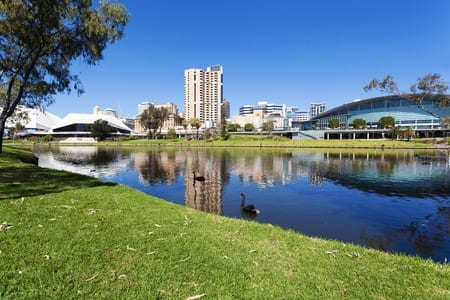Psychologist Interview with Peter (Marriage Counselling Adelaide)

Peter’s passion is Relationship and Marriage Counselling in his Adelaide clinic. Peter’s services are available in his own dedicated, personal, and homely counselling consulting room, or by Skype or telephone. Expert relationship counselling Adelaide.
To read more about Peter or view his psychologist profile, click here. Marriage counselling Adelaide.
- What has made you interested in helping couples with their relationships?
Relationships make people happy. Happy people are sociable. Good relationships raise the potential for very happy couples. Relationships with our partner helps define our lives, along with our other relationships with our colleagues, children, parents, close friends. When relationships are glowing, so are we. We can make relationships glow, because we can decide the terms of our relationships. Improving our relationship with one person increases our potential to improve other relationships. Counselling for relationships helps people become happier.
- What do you find are the most common relationships problems that you see in couples coming in to see you?
I see five categories of relationship problems:
(1) when a relationship isn’t working, it may be that one or both people is not feeling secure. Someone is not safe being who they are. Living through positive values and beliefs helps people transcend problems and allows relationships to flourish;
(2) People need to be mentally, emotionally, and physically fit to make relationships work. Energy is important. It encourages thinking and reduces impulsivity, making assumptions, and increases and maintains effort. Self-regulation and managing energy are powerful forces for healthy relationships;
(3) A relationship is a system. It has many interconnecting parts, a Kabbalah of interacting aspects of relational life which create a unique culture built of knowledge, experience, and creativity, which fills all members with confidence. Relationships are about activity, decision-making, problem solving, building trust, and weeding out toxicity. Conceiving a relationship as a system develops patience and tolerance, and helps people make the right call at difficult moments;
(4) Adaptability. Over time in a relationship people play many parts from friend, through lover, to partner, husband/wife, mother/father, maybe business partner, aged parent, ex-husband/wife and so on. These mental, emotional, and behavioural shifts require different ways of meeting our needs and wants and meeting our intentions and expectations while remaining authentic and allowing new versions of the people in the relationship to develop;
(5) Making choices rather than falling into habits. We always have choices, and making choices creates personal power and control, and also develops responsibility. We are responsible for our relationships.
- What are the most common problems for women and men individually in relationships?
Relationships prosper when the above factors start to operate freely. Problems in these five areas affect men and women equally, but sometimes differently, in relationships, and I find it a useful template for seeking out the nature of problems. Marriage counselling Adelaide services.
- What would you like couple clients to know about the couple counselling process before they come in?
People will be given support and practical guidance to develop confidence and skills to develop their relationship their own way and deal with relational stress, so they find the pathway they are looking for to take them from their present sate to the one they desire.
- What has been the couple you remember who has made the biggest turnaround, from being in severe trouble to transforming their relationship into a happy loving one?
A couple who separated on the birth of their child, because the father did not want a child, and believed he was talked into having the child, who later in the year re-united and the husband became a very loving and happy father and husband with a very contented and loving wife in a great relationship, and who are now contemplating a second child together.
- If you had one word of advice for couples with children, what would it be?
Happy parents = happy children — refer to Q1
- What advice would you give to couples trying to rebuild their relationship after an affair?
Respect and accept the pain of the faithful partner to help rebuild trust, be open and disclosive to reduce distress in this partner and in the relationship, acknowledge the pain of your faithful partner to open the gateway for healing, take responsibility, avoid defensiveness, and both partners should expect setbacks and painful feelings, should maintain boundaries and avoid anything that creates risk, and he non-faithful partner must close off the affair, while both should e mindful of meaning about what happened and live in the present, and realise there will be pain on both sides so both people need to face fears, grief, losses, and need to examine the personal decision making in the relationship, as per Q2.
- What, for you, are the most important things that couples need to remember if they want their relationship to thrive, instead of just survive?
The information in Q2 is relevant here. Couples need to be relationship ready, with their mind, brain, body system in the right place, and know that coming together as a couple requires skills and learning each can acquire, so it becomes important for couples to take up the tools, techniques, and strategies to create and build lasting relationships. Relationships incur trouble spots and
disagreements, which means also acquiring the means to deal with them, which refers to all aspects of effective communication, understanding, and appreciation. Finally, if you find yourself in a rut, throw away the shovels. If you keep on doing what you have always done, you will dig deeper and get what you’ve always had. Change, and some new beginnings are called for.
- What proportion of your couple clients manage, with your help, to successfully recreate a happy relationship from the difficult one that they came in with?
It depends how success is judged. Some relationships end in counselling, and sometimes only one walks away happy, sometimes both have sense of happiness and relief. Occasionally, one person is attempting to use the counselling process against another, and find when they cannot do this, they exit the process. Often the other person stays! At times, a person can uncover the nature of the personality of the other, and change the way they process through counselling with greater empowerment. At other times couples work systematically through problems to happiness.
- What do you find is the most satisfying and fulfilling part of this work that you do?
The new beginnings people create. Personal power, growth of personality, growth in knowledge and skills, and development of creativity is like money in the bank for couples. It can be saved and spent wisely and becomes useful and enriching, optimising the relationship. New insights can be created and the relational Kabbalah enriched. Seeing couples using their growth and energy to make changes can be personally satisfying. Seeing life together through new and different eyes, seeing people create new and significant options for themselves, watching couples grow and work towards their dream, while developing resilience, relapse prevention, and preparing for difficulties, all as part of core competencies, is satisfying and fulfilling, as you see what they have achieved.
- List 3 qualities that your friends and family would describe you as having.
My Wife tells me I have good interpersonal skills, and I express myself well, and I am intuitive, warm, and accepting, empathic, and focused on the client, encouraging them to do the work. I will leave it at that.
- List 3 strengths that you have as a Psychologist.
It is said I am helpful, mindful, effective, and that I reduce distress and promote good mental health while encouraging prevention through the work I do. It is for others to say.
- How many years’ experience do you have practicing/helping clients?
The APS sent me a 20 year membership award at the start of last year. The two years before that 20 years commenced I worked in a community health centre. The five years prior to that I worked as a Lecturer in Psychology, following a stint as a student counsellor. Marriage counselling Adelaide.
Marriage counselling adelaide.
If you would like to make a booking with Peter or any other of our psychologists, you are welcome to fill out an enquiry form here, or call our friendly receptionists on 1300 830 552.
OUR MAJOR MARRIAGE COUNSELLING LOCATIONS:
See all of our Relationship Counselling Melbourne locations.
See all of our Relationship Counselling Brisbane locations.
See all of our Relationship Counselling Perth locations.
See all of our Relationship Counselling Adelaide locations.

